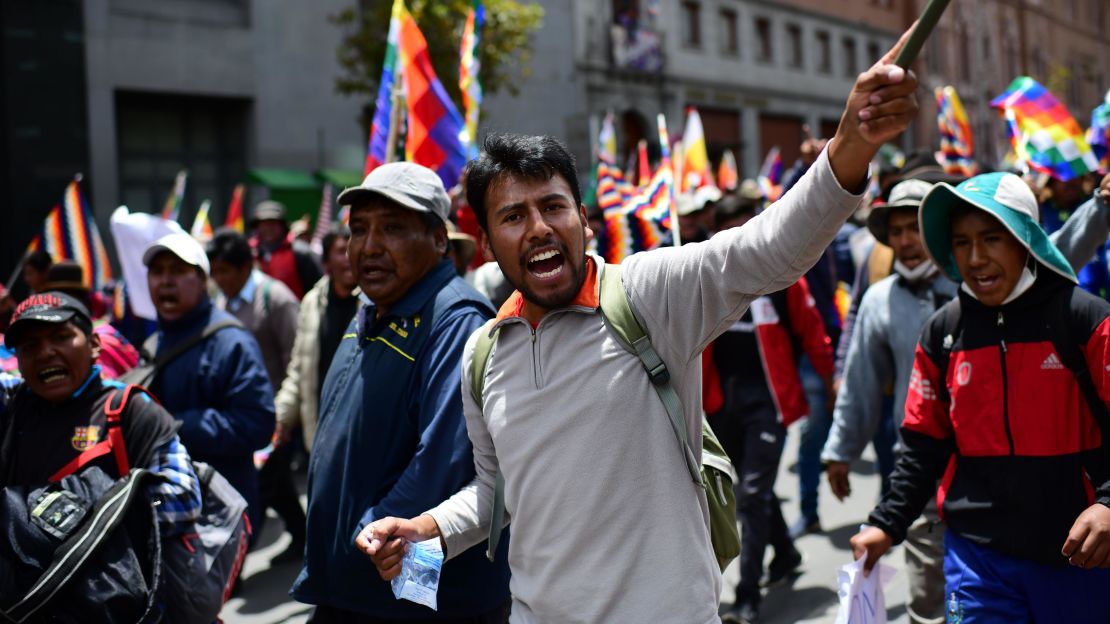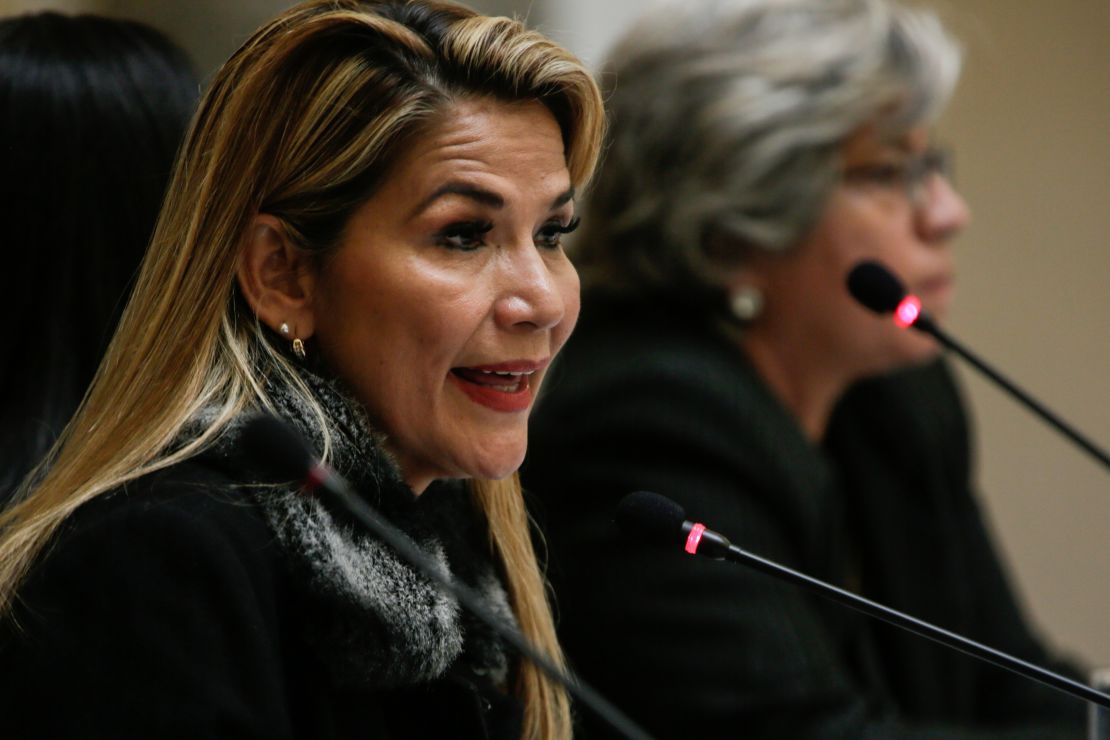Bolivia’s former President, Evo Morales, said that he is willing to return to the country and not run in the next election for the sake of peace and stability if his resignation is accepted.
Morales, who was in power for nearly 14 years, accepted an offer of political asylum from Mexico after resigning Sunday amid allegations of “serious irregularities” during last month’s election and pressure from the country’s armed forces.
Morales faced mounting protests in the aftermath of the October 20 vote as demonstrators and the Bolivian opposition accused electoral authorities of manipulating the vote count in favor of the incumbent.
He denied the allegations and declared himself the winner, but was eventually forced to step down before leaving the country.
Speaking to CNNE’s Carmen Aristegui in Mexico City on Friday, Morales said if the country’s National Assembly accepts his formal resignation he will return to the country.
He claims the accusations against him are part of a coup by right-wing politicians and the armed forces, but his opposition maintains they are fighting for democracy and peace.
Jeanine Anez, the second vice president of Bolivia’s Senate, appointed herself as interim president on Tuesday after the three people in positions ahead of her quit.
“This is a transitional government,” Anez said in an interview with CNN. “Obviously, as soon as we can, we will call general elections so the Bolivian people can have a president elected by us in a democratic manner.”
Morales told Aristegui he will not be participating in those elections.
“For peace, for Bolivia, I’m not going to run for the presidency,” Morales said.
But Anez told reporters that both Morales and former Vice President Alvaro Garcia Linera are barred from the election.
“I would suggest to the MAS party, that from now on they have all the rights to participate in the general elections, to start looking for a candidate … Evo Morales is not eligible for a fourth term,” said Anez.

Protests for Morales
Protests broke out Wednesday in La Paz, the administrative capital of Bolivia. Demonstrators carried the indigenous flag and called for Morales to reject Anez’s government.
Indigenous people make up some 20% of Bolivia’s population, while 68% of the country has some Amerindian ancestry, according to the CIA World Factbook. Much of Morales support in the past has come from his leftist policies to reduce poverty and support indigenous Bolivians.
Rigoberta Menchu, one of Latin America’s most prominent indigenous rights activists, came out in support of Morales on Twitter Wednesday.
“We energetically condemn the coup d’etat in Bolivia, perpetrated by the army and oligarchs opposed to the government of our brother President Evo Morales,” said Menchu, who won the Nobel Peace Prize for her work in her home country of Guatemala.
The protesters were in brief confrontations with riot police Wednesday. Some protesters were seen throwing rocks at authorities, while police used tear gas to disperse those who had gathered.

US backs interim government
The United States threw its support behind Anez Wednesday, officially recognizing her government.
Washington’s top diplomat, Secretary of State Mike Pompeo, congratulated the interim Bolivian President in a statement Wednesday and called “on all parties to protect democracy during the coming weeks and to refrain from violent acts against fellow citizens and their property.”
Morales was quick to denounce the decision by the Trump administration to recognize the Anez government.
“This coup d’etat that has triggered the death of my Bolivian brothers is a political and economic plot that came from the US,” Morales said Wednesday.
CNN’s Radina Gigova,Tatiana Arias and Gustavo Valdes contributed to this report.






